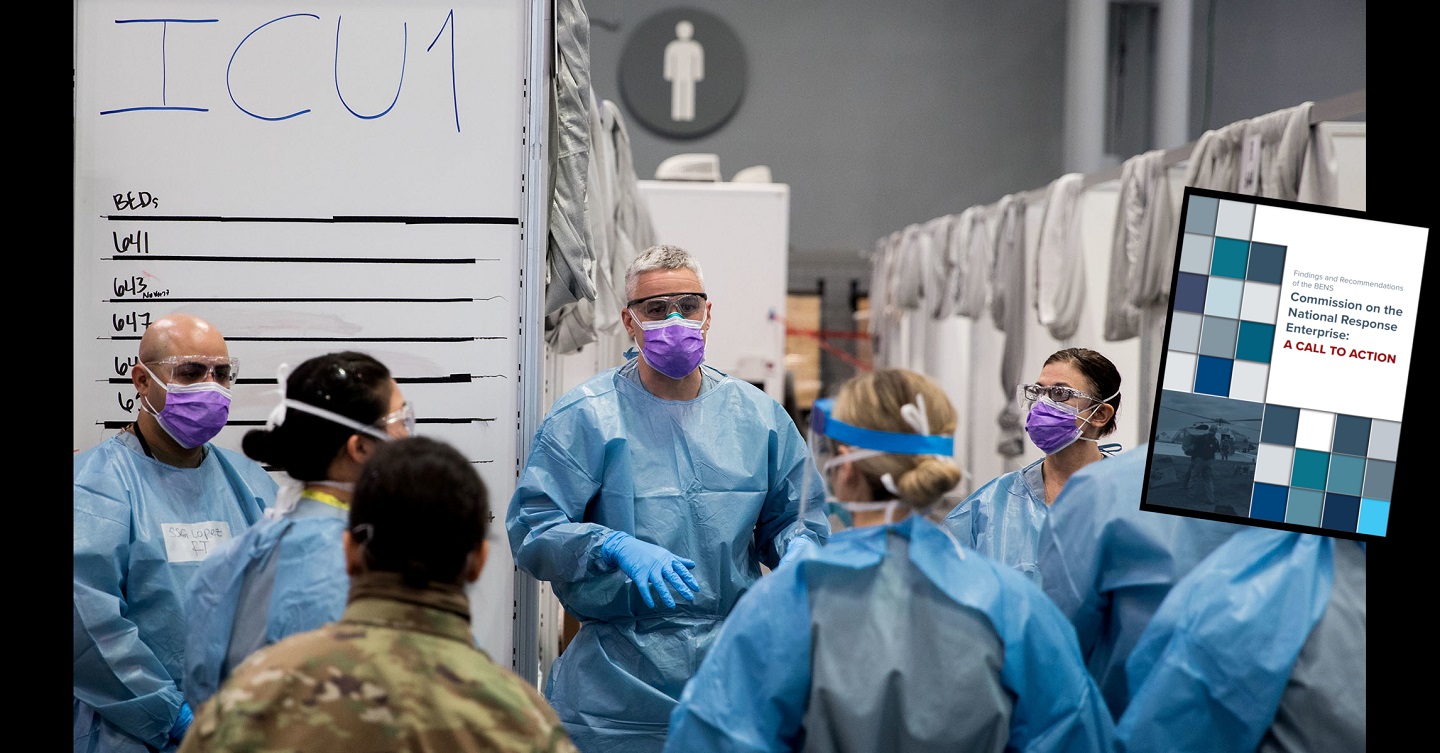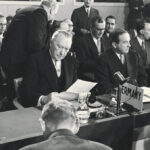
Emergency response in the United States typically relies on one saving tenet of operations — a safe haven to prepare and stage and launch from. Natural disasters tend to be localized. Hurricanes, tornadoes, fires and earthquakes may strike large swaths of the country but typically there is some place outside of the disaster zone that can be used to launch rescue and recovery operations. COVID has challenged that principle for the first time in many years. This is a global pandemic with virtually no “safe zone” to launch from.
Business Executives for National Security (BENS) a nonprofit comprised of senior business and industry executives commissioned a study and produced a report it refers to as “A CALL TO ACTION” to strengthen U.S. emergency response for sustained, widespread events such as the COVID-19 pandemic. BENS President and CEO, Joseph Votel, joins our own Editor-in-Chief in the virtual studio to discuss the findings of the report. Their conversation reviews the recommendations of federal, state and local government responsibilities and relations and the need for a national strategy for emergency response. Not surprisingly, as in any large scale operation, the need for clear communication and information sharing is highlighted as one of the crucial factors for success.
Of course, trust is not something that can be mandated or legislated here, this actually has to be developed person to person, organization to organization, institution to institution, and it has to be done very, very carefully.
Podcast: Download
Subscribe: Apple Podcasts | Spotify | Amazon Music | Android | Pandora | iHeartRadio | Blubrry | Podchaser | Podcast Index | TuneIn | Deezer | Youtube Music | RSS | Subscribe to A Better Peace: The War Room Podcast

General Joseph L. Votel, U.S. Army (Ret.), is the former Commander of U.S. Central Command (CENTCOM), U.S. Special Operations Command (SOCOM) and the Joint Special Operations Command (JSOC). He currently serves as President and CEO of Business Executives for National Security (BENS) – a national, nonprofit comprised of senior business and industry executives who volunteer their time and expertise to assist the U.S. national security community. Jacqueline E. Whitt is an Associate Professor of Strategy at the U.S. Army War College and the Editor-in-Chief of WAR ROOM. The views expressed in this presentation are those of the speakers and do not necessarily reflect those of the U.S. Army War College, U.S. Army, or Department of Defense.
Photo Description: U.S. Army Major Sean Shirley holds a meeting with staff in the Javits New York Medical Station intensive care unit bay monitoring coronavirus patients in New York City, April 4, 2020.
Photo Credit: Chief Mass Communication Specialist Barry Riley/U.S. Navy





From the BENS report
“While trust cannot be legislated or mandated, it emerges naturally from regular interaction, shared experiences, and personal relationship-building. Emergency response leaders and their teams should make every effort to continually build and deepen trusting relationships among all stakeholders within and across sectors and to establish confidence in plans, systems, and providers through continual testing and exercising. ”
I am retired now, but in my experience too often the organization will only send one person to the meetings/conference/simulation (even if the event is in the same city as the organization, thus there are no travel costs) with the belief that that one person will bring back all the necessary information and share it with the rest of the organization. The truth is that the real gains are in the personal relationships that are built between people; therefore an organization needs to send several people. In my experience when I needed to get something done it was good to know who in the other organization that the requested needs to go to, rather than going up through the hierarchy across and down again.
So sending only one person is a false economy.